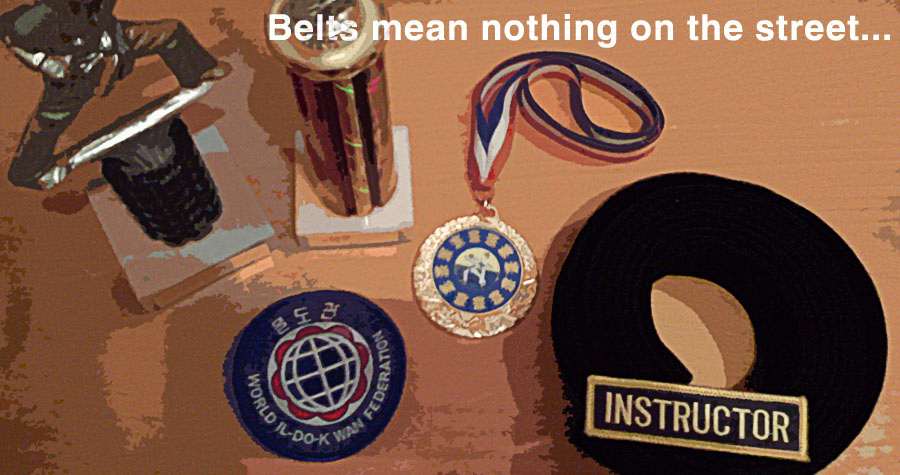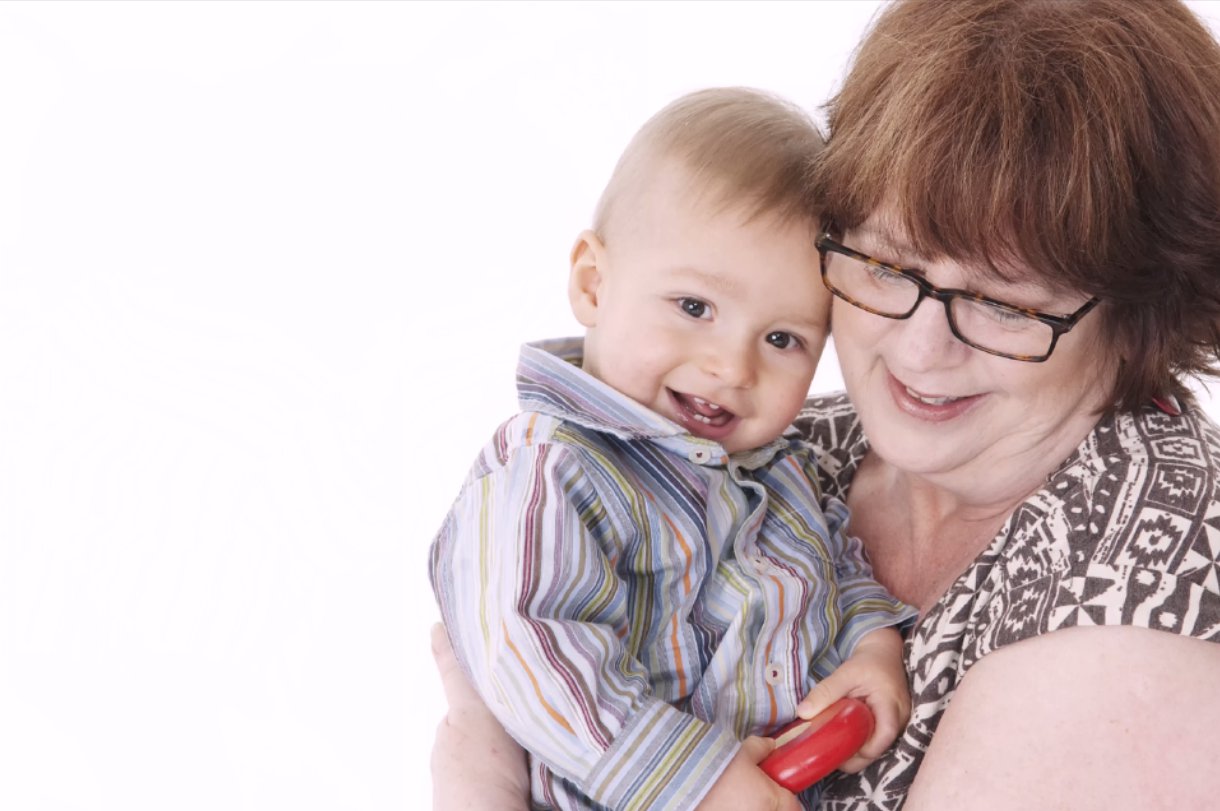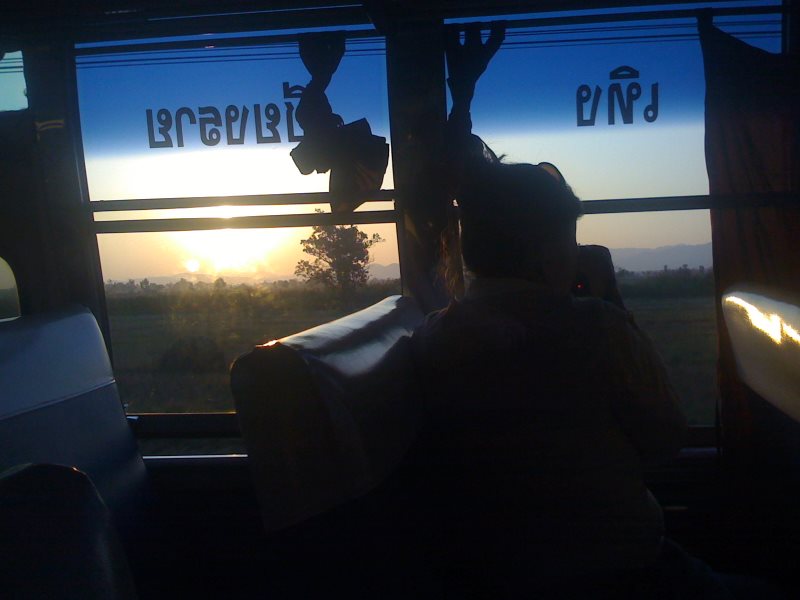For most martial artists, being mugged in broad daylight is an unlikely occurrence. Fit, aware and confident looking people do not make inviting targets. However, in modern society criminals are more brazen than ever and how we react to such violence is the measure of us. We need to stay on the correct side of the law and control our reactions but, as the old-question asks, “is it better to be judged by 12 than carried by 6?”
There follows a true story of a situation that took place in the street, but equally could have been straight out of a dojo training session. It is interesting because it highlights many things: the dangers of being “switched off”, the speed of the trained man’s reactions, the attitude of the police and the judgement of others. It also highlights a part of conflict that is often missed and shows that in the end the most harsh judge is in fact yourself.
This story is true and happened in late 2009, I repeat it here as it was told to me with permission of the person involved.
Raymond was walking through his local town of Brixton, London. As he walked down a quiet street near the park, three large men approached him from the front. Raymond didn’t totally ignore them and walk straight into the situation, but he was not instantly aware of the danger either. They closed on him and formed a semicircle that blocked the street ahead. Raymond looked up to see the man in the middle pull out what he later described as, “the biggest knife I have ever seen”. The knife came up threateningly and moved towards his midriff. It looked as though these guys were going to mug another helpless victim and escape into the park. However, this time they had made a huge mistake because Raymond is a professional martial arts instructor.
“As soon as I saw the knife, I just started moving. It was instinctive,” he told me. “It was like a sudden shock and my body took over, it was so fast.”
Indeed the entire episode was over seconds later. Raymond turned his body so the knife passed by his stomach. He then covered over the knife arm with his hands and slammed his hip against the man’s elbow. The move was textbook perfect and the knife man’s arm was dislocated instantly. The second man moved in to strike Raymond. Without letting go of the first man’s arm, Raymond kicked out with the classic downward sidekick to the knee. This missed its intended target and his heavy shoes crashed into the second man’s shins, breaking through his leg with a sound Raymond described as, “a sickening crunch”. As the second man fell down, Raymond pulled the first man’s arm around and disarmed the knife by pushing it towards the man’s face making him let go of the blade that passed into Raymond’s hand. Another textbook technique, except as Raymond was describing this to me I saw a look on his face; a look of self-reproach.
“You moved the knife towards his face?” I asked.
“Yes, it was the technique,” he replied to me, “when it is taught in class, the end of the technique is to have the knife against the opponents neck. I have taught it for years; take the knife and use it against them.” He shook his head and looked down.
“And did you?”
“I was about to. My body was just doing the technique automatically and the blade was moving towards this guys neck. I realised that this was going to kill him. I screamed at myself inside my head, trying to stop the action from completing. I was like, ‘what the hell are you doing?!’ to myself. At the last moment I turned the blade away.”
As the blade moved in front of the first man’s face the last man moved in to grab Raymond’s hands.
“What did you do then?”
“I stepped forwards into him and struck the last guy with an upper rising elbow to the collarbone. It broke and he went down.”
“A stepping upper rising elbow?” I asked, “that’s a strange technique choice.”
“With the knife in my hand I didn’t want to stab him, it was just instinct,” shrugged Raymond.
With the three men disabled and rolling around on the floor in pain, Raymond did what any good citizen would do in these circumstances; he called them an ambulance. Then the police arrived and promptly arrested Raymond.
“They arrested you?”
“Yes, they spoke to a bystander who had been on the other side of the street and he said I had been excessive and over the top,” he said.
“Really, there was three of them. Did the bystander not see the knife?”
“No, I showed him it on the ground and he said that I had still been too violent. I couldn’t believe it, I was like, ‘can you not see the size of this thing?’”
Raymond was telling me this story the next day along with some friends. To them, it was exciting and macho. They replayed it again and again amongst themselves, shouting and whooping and saying how they would have dealt with the situation. The only person not smiling was Raymond.
“What do you think the police will do?” he asked me. Luckily, one of the friends present was an off-duty Metropolitan police officer.
“What did you say at the station?” the policeman friend asked.
“The truth. That they pulled that knife and I was defending myself. That they were coming for me and I was in fear of my life.”
“Don’t worry,” the policeman friend said, “you appear to have acted correctly. You waited and phoned the ambulance too that shows a lot. They will probably give you a medal.”
Raymond looked across to me, “what do you think Basho?”
“How long have you been teaching Raymond?” I asked him.
“18 years.”
“Mate, you will have hundreds of students willing to give you a character statement. Don’t worry.”
“Yeah,” said the policeman friend, “I will give you one too, just get them to call me. You have my number.”
“Yeah,” broke in one of our other friends, laughing, “and if you need one from a bricklayer, let me know!”
We all laughed, except Raymond. The others went back to describing the event to each other excitedly. Raymond remained quiet.
“Look,” I said, “I know how you feel. Guilty, right?”
“I was so close to killing him. Maybe I was excessive.” He sounded unsure of himself.
“Take your time,” I said, “you just need to work through this.”
Raymond’s reaction to the event was not unusual. Where one might expect him to be happy, elated and empowered by single headedly defeating three muggers, in fact he was badly shaken by it. The huge amount of danger he had been exposed to had put his mind into shock. What if he had lost the fight? Would he have been stabbed to death? These things were running through his mind again and again, playing over different outcomes, a mental state the French call, L’esprit de l’escalier” or in English, “the spirit of the staircase.” Such feelings are very common after a violent situation. At the moment Raymond saw the knife, and his reactions took over, his brain ordered his glands to dump all sorts of chemicals into the blood. These chemicals made him stronger, faster and narrowed his vision. It also made his blood coagulate quicker and his mind process faster so that the entire event seemed to be happening in slow motion.
One side effect of such a body reaction is the feeling of either terror or rage. The ‘beast’ inside is unleashed and takes over the body. For martial artists, this is channelled through our training. By the endless repetition of techniques, basics and kata we have conditioned ourselves to act in a certain way under pressure. The downside is trying to control that rage with ‘the beast unleashed’. Our civilised brains, the part of us that doesn’t want to hurt anyone, fights for control. For some, like Raymond, it succeeds. For others, the beast wins and tragedy happens; someone gets killed.
Regardless of the outcome, the chemicals burn the event into the memory and what Raymond was feeling was essentially survivors guilt. Guilt for having lived through a traumatic experience, prevailed against the odds and having almost killed in the defence of his life.
The part of British law that covers self-defence has been clearly written to take this mental state into account. The police arrested Raymond and made him make a statement very quickly after the event. At this point he was either still pumped full of adrenaline (making him more talkative) or coming down off the chemicals in his blood stream (making him feel down and possibly needing to “offload”). The police are trained to take advantage of this situation to get the truth out and down on paper. Therefore, your statement is the most important thing to get right. People acting in self-defence have still gone to prison because of what they put in their statement. Knowing not ‘what to say’, rather ‘how to say it’ is going to be the second ordeal you face on a day this happens to you. The law is available in clear and understandable terms at the following government web address: www.cps.gov.uk/legal/s_to_u/self_defence/
The question of how to translate the mental part of combat into training is the primary challenge for instructors. Most doctrines teach that building muscle memory is the way to go, and it is often said that a thousand repetitions of a technique will embed it into instinct. While this appears to be true, there is a large question left outstanding; if we are not teaching people how to cope mentally, then are we teaching them to freeze up and fail at the vital moment. On the other hand, it is important to avoid fully automatic instant responses and end up battering someone honestly asking for directions. It is a balance that forms the hardest part of training and teaching. How many instructors inadvertently teach techniques that kill, sometimes tacked onto a disarming technique as an afterthought? Instructors spend all their lives teaching how to deal with the physical outcomes of conflict, but is it not equally important to understand and teach the mental aspects?
While objective answers to these questions may be impossible, it is surely vital that the class and the instructor considers the questions.
The next week I met up with Raymond again. He told me that he had re-visited the police station and been told that all three men were still in hospital. However, he was also told that the police were not going to press any charges against him. He looked most relieved. He was free of the event legally, I only hope that he is able to free his mind as well.
Basho has been in the martial arts for 18 years and holds a 1st Dan instructor grade in Taekwondo. He recently returned from a year touring the far east.
[/fusion_builder_column][/fusion_builder_row][/fusion_builder_container]







